The U.S. Postal Service held a combative Nov. 21 public hearing on a proposal to close its the Brevard Road mail processing center in order to cut costs. Officials told the more than 200 attendees that the move would result in at least 22 positions being discontinued and 180 jobs being moved out of Asheville, mostly to a mail processing center in Greenville.
The change is being considered as part of a national “radical network realignment” at the USPS, explained Angela Curtis, district manager for the mid-Carolinas. The agency is in the process of reducing the number of mail processing plants nationwide from 673 (as reported in 2006) to less than 200 by 2013, she said.
To consolidate these facilities and “optimize the machines” (make them work around the clock sorting mail), the postal service would also change mailing standards: The goal of overnight first-class mail service would expand to a two- or three-day turnaround in Western North Carolina and across the country, she said.
The plan is needed in order for the USPS to tighten its belt in a world of declining first-class mail (thanks to the internet and other factors), which is responsible for the majority of its revenue, Curtis reported.
But several members of the public questioned the logic of sacrificing service standards for the sake of so-called efficiency. In addition, local business owners lamented how the changes would affect their bottom lines. Local USPS employees expressed outrage at the thought of being forced to move their families to Greenville to keep their jobs. And government officials stood up to lambast the plans, expressing strong support for the center staying here.
Surveying the room, at one point Buncombe County Board of Commissioners Chair David Gantt asked if anyone present supported the plan; no one raised a hand.
Here’s some snapshots of some of the people who spoke at the hearing, in photos and in their own words (all photos by Bill Rhodes).
For a summary of our live Twitter coverage of the meeting, click here. Mountain Xpress will also have more coverage in the Nov. 30 print edition.
Nelda Holder:
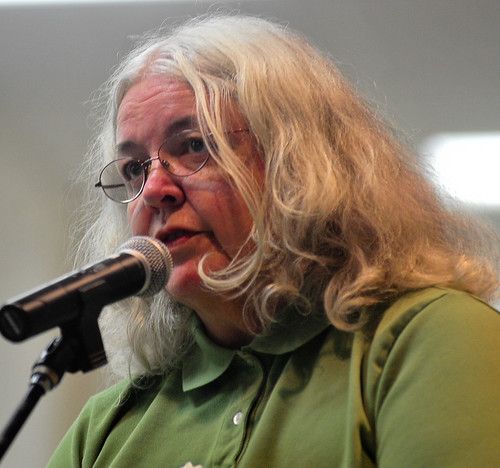
My question has to do with the area and terrain that we live in. You’re going to have all the mail from this area going down the Saluda grade, and back up, in winter. And I want to know why you would want to configure it that way and not keep Asheville and Western North Carolina as a complete unit and not add that risk to drivers.
Art Helms, senior plant manager, USPS:

The safety would be the same as what we’re doing now.
Chris Wallace:

Obviously our service in Western North Carolina is going to suffer if you close this plant. You say right here in the flier you handed out that the study is looking for ways to improve service and save money. I don’t see how it will save money because you’re going to be paying Greenville employees to do the work instead of Asheville employees. …
Why are you putting money as the bottom line in this decision when we’re a public service?
Terry Bellamy, mayor of Asheville:

This move would add additional time to costumer delivery and be a reduction of service standards realized by the citizens of Asheville and Western North Carolina. The reduction or closure of the Brevard Road facility would also affect as much as 180 workers and the economy of Asheville and surrounding communities. The City Council supports federal House resolution 1351 to preserve and secure the current level of mail service to the citizens of Asheville and Western North Carolina. … And I’m submitting it to you now.
Linda Labelle

I have a small business here in Asheville. … On a good year, I can do $15,000 in business with the post office. … My costumers rely and count on the fact that I can do a quick turnaround. What’s going to happen if you move to Greenville?
Helms: Actually, what we’re looking at with the mailers, is that you can drop the mail off at the Greenville plant before 12 in the morning. We’re going to meet with all the mailers to see what we can do.
I’m a very concerned citizen. …I’m shaking I’m so angry. … You’re not giving us respect. The decisions you might be making for the citizens of Western North Carolina are of great consequence to us all. Why has there been such little notice given to us about this. We need time do have public research and do research in regards to what you’re proposing. … I’ve seen a lot contradictions in the information you’ve given.
Jonathon Dudly:

It really appears to me that you guys are persuing a plan that’s going to shoot yourselves in the foot. … If your justification for these closures is a reduction in first class mail, it seems like a reduction in the quality of service can only further reduce the amount of first class mail you process.
Ernie Thurston:

My business is political bulk mail. … It’s very important that things get delivered as quickly as possible. It mostly all goes as standard mail. … In the last four years, I’ve been responsible for about 2.2 million pieces of political mail going throughout the state. Delivery in Asheville has always been really good. … The Asheville facility does an excellent job. In my experience, it’s about the best in the state. … The nature of political mail is they make decisions at the very last minute. … Next year it’s going to be huge. … For my business, because I’m servicing the whole state, not having a facility here in Asheville is going to seriously threaten my business.
Carol Orengo:

The 2006 law that passed requiring the USPS to pre-pay pensions for the next 75 years. It seems like that’s when your downslope started. And I think if it wasn’t for that, the post office would be in the black.
Angela Curtis, district manager, USPS:

That was not the total issue. The continued decline of the workload of first-class mail, along with. … transportation, that in some cases is transporting air across the country, which is a huge cost to business. … As we continue to optimize the network, that will allow us to fill the trucks up instead of transporting at 47 percent capacity. And that’s the average the postal service runs transporting from plant to plant. … We have a “no lay off” clause. We have yet to lay off an employee for this network optimization. We reposition. We move temporary employees. But for career employees, we have a no lay-off clause. …
There are options we pursue. We talk with the unions at the original level. Once we do that we begin meeting with employees and discussing their options. … there are residual jobs available throughout portions of Western North Carolina. … The company has not been filling jobs when people retire… There’s a net career impact of minus 19 employees and three management employees. …
I know most of you, almost all of you are praising the Asheville plant, and they do a phenomenal job. It was never about their work ethic or their commitment. … The business is considering a lot of different options. This is a study. It’s one of the many options to consider nationwide to make the post office more effective. … It’s not a done deal yet.
Jake Reese:

You’ve got one product to push, and that’s service. You’re not pushing that, you’re not selling it. It’s getting worse. You’re not concentrating on service. … I love the post office. … I see it getting worse and I’m appalled.
David Gantt, chairman, Buncombe County Board of Commissioners:

We will be giving you a resolution at our next meeting. We agree with what the city’s done. This will be a horrible thing for the community. …
Let me make sure I’ve got these assumptions right, because I don’t understand this. You say that somehow that by going to two- to three-day service, you’re going to increase demand for service? …. I just don’t understand that. …
This is about people. I understand the dollar part of it, but the government is here to serve the people. … Now you’re talking about taking away service to improve your bottom line. … But more importantly, I want you think about these folks when you go back and talk about this, you look at these folks, because a lot of these folks aren’t going to be able to move to Greenville. … and I’m not sure it’s going to be more productive. I haven’t heard a compelling reason that this is going to save a lot of money. You’re government; you’re supposed to serve folks, and do things, and do them in the right way, and I don’t think this is the right way.
Jack Poisson:
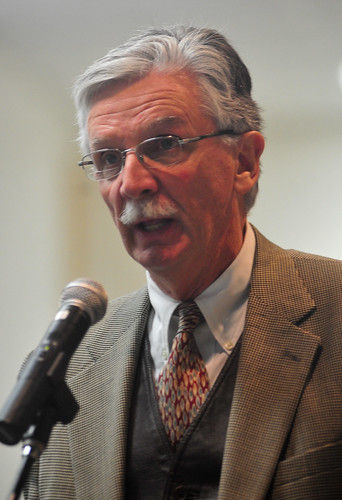
When the post office goes out of business, which I know is on the Republican agenda, we’re going to be paying $5 to mail a letter using UPS or Fed ex. … I don’t want you messing up your service.
This is not really a debate about whether it’s a Democrat’s fault or a Republican’s fault. The truth is, this is going to affect our business, as well as Mail Management and all the other printers in the area that handle mail. The reason our clients aren’t using mail isn’t because of email. It’s because the cost of postage went up.
Grove Alexander:
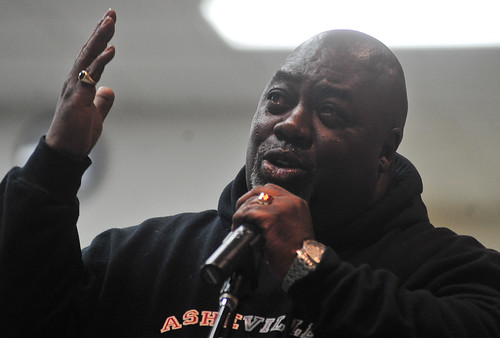
I’ve been employed by the USPS since 1981. Anybody knows that has the kind of time in that I do, knows that this is a done deal. This is going to Greenville. This is a formality.
This rural area of Western North Carolina and a lot of other areas have a lot of poor people who do not have email. And the only way they can send anything is via the postal service mail.
Parker Sloan:

The USPS is a public service; it’s not a business. The federal government in the state of North Carolina is not a business. … I hear members of Congress say it needs to be run like a business. … Members of Congress who do things like the 75-year pension plan thing, their intelligence is in question. But that’s what happens when you vote the wrong way.



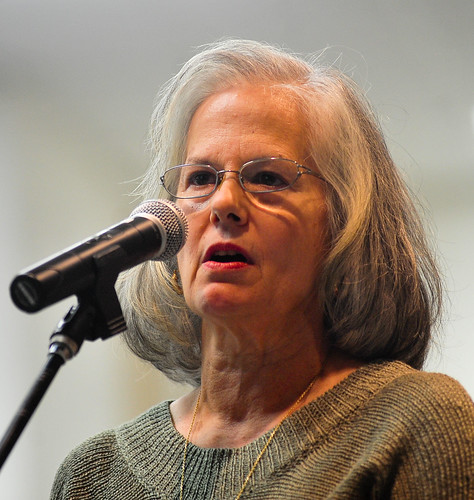

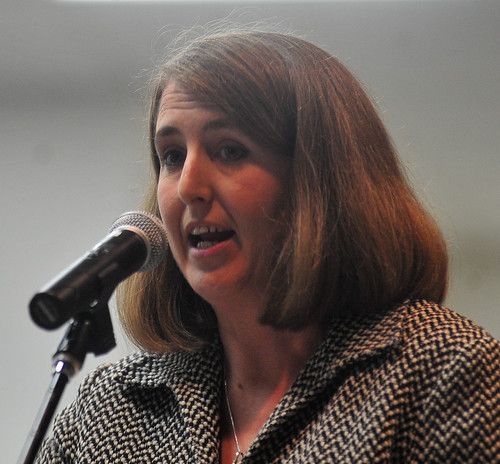
The long emergency……..
That’s a good name for it.
Shock doctrine. A permanent installation of studies in wealth concentration.
the study is noy based on ashevilles mail volume but a national mail volume.. if 3 management employees make about 7000,000.00 and 19 employees make 875,000.00 dollars thats an average of2333,333.00 dollars for management and 46052.00 for employees so whos to blame!!!!!! this about the wall street mentality of the post office. the post office lost over 20 million dollars last year for paying for managemnet employees to move so how about they paid twice the value for those homes so their managemnet people would get cash deal just like aig and wall street